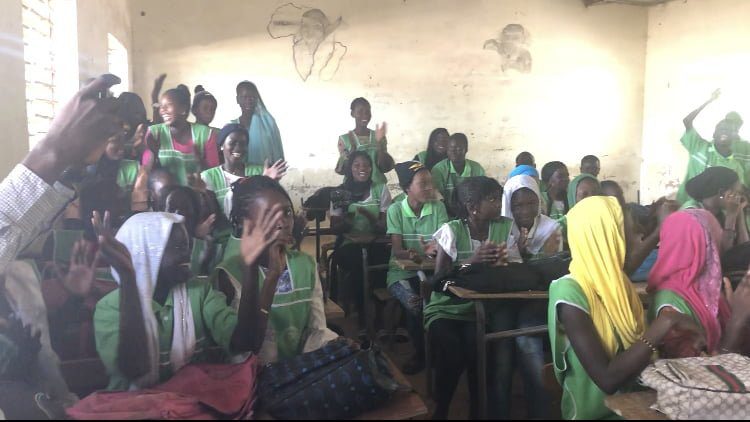Share this!
Ways Senegal Has Changed My View On Education

Post contributed by Tagaty Badio
Education has always been a priority in my intellectual background. I was raised believing that school education was crucial and that everyone should go through it. I arrived in Senegal with that belief. I was pleased to be a teacher’s assistant in a rural commune named Khombole, as it was allowing me to advocate for education in an environment where I thought that, students were poorly educated. I was not quite right. The problem in “African schools” was not really about the lack of resources: my school had a library full of books, teachers had a platform to share learning resources, and study groups were available for students. The issue was not school attendance either. In the contrary, classes were filled with up to 90 students against one teacher, and most of them were girls. The problem was, instead, amongst students and their lack of motivation for their studies. Why is that?
First of all, the educational system, inspired by the French one, is poorly adapted to the Senegalese context. Schools expect their students to be proficient in French, the national language since France’s occupation in 1814. Yet, in Khombole, rare are those fluently speaking that language. Wolof and Pulaar are the main local dialects that people use to communicate. As French is not spoken at home nor on the streets, it becomes difficult for students to speak and understand the main educational language. Not to forget the anticipated mastery of secondary languages like English and Spanish, both at the same time. Consequently, students are stuck with three languages that they cannot practice properly, but still expected to succeed in them. Students then struggle to find a purpose in their studies.
Secondly, I believe that one’s family background has a prominent influence on their education. I grew up in an environment where it is the norm to study, and a shame if you do not. However, in Khombole, many of my students are the starting point of their educational legacy. Some parents were educated until middle school, and most parents received an Islamic education instead of the French one. Consequently, family members are usually manual workers or religious leaders. Jobs in carpentering, tailoring and islamic teaching are common in Khombole, as they do not necessitate intellectual studies. In that case, parents are unskilled to aid their children in school. Due to the lack of support at home, students become disoriented in their education.
Regardless, it is worth mentioning that despite all those ambush threatening their schooling, more than 35% of students manage to graduate high school. In the typical, Western standards, graduating means that young adults are able to get hired and begin their professional careers. Sadly, that reality does not translate to Senegal. The country’s unemployment rate is officially up to 15%. A great number of educated people have diplomas in law, journalism or medicine, but little of them get actually employed in those fields. That is the reason why many drop out of school and turn to labor work, as they have greater chances to find jobs. In the same way, religious education, the study of the Qur’an and Islam, is prominent in rural populations as it generates great work in Islamic institutions. As you may see, intellectual jobs that necessitate complex studies, are not significant in rural Senegal.
Lastly, those insights encouraged me to reflect on my preconceived idea about Senegal and education. That is, schooling is everything for me. For them, it is not. And that is okay. It is fair for me to pursue a PhD because I want to become a lawyer. It is a privilege for me to attend a university because of my parents’ influence. Similarly, it is justified for a Khombole boy to not undergo further studies because he feels that the educational system is no use to him, as he rather becomes a carpenter. What is not okay is to undervalue “uneducated” people just because they choose not to go to school.
The reality is, contrarily to the Western mindset, school education does not always open doors, and it does not have to be a priority. Hence, alternative education like trainings in manual work and education about Islam have proven to be more valuable for Senegalese rural population. So indeed, education is a universal right, but Western schooling system is not.






